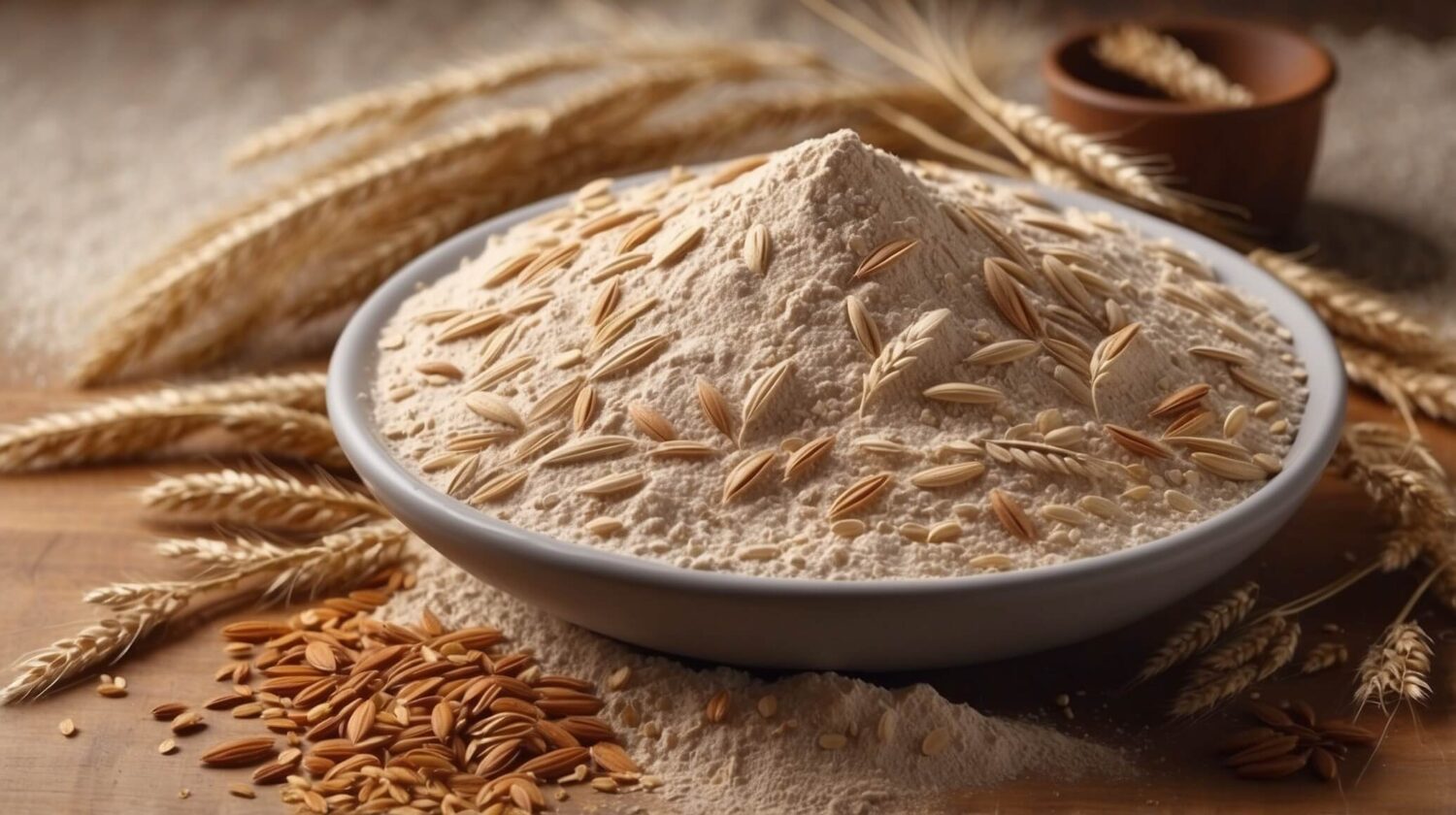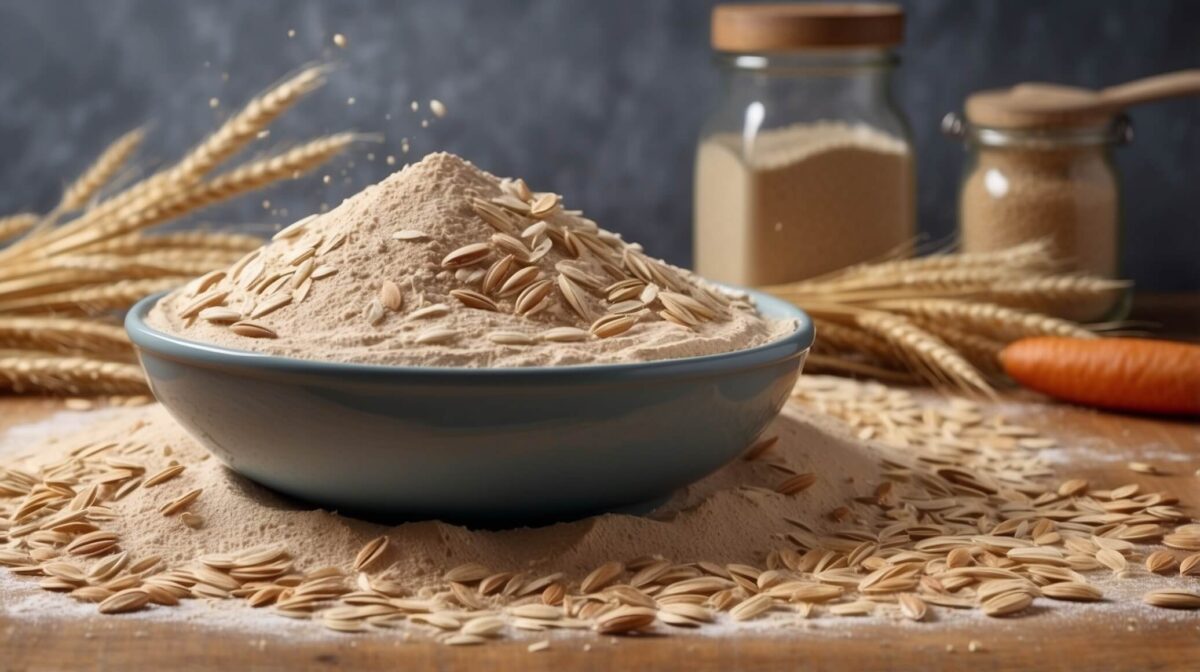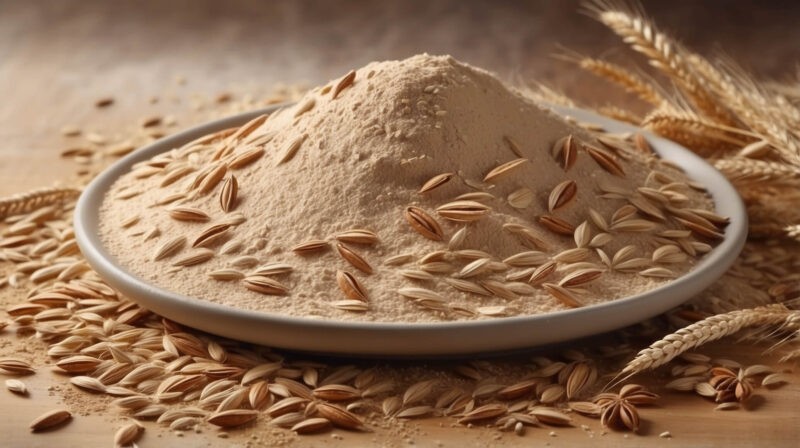Rye flour is gaining popularity among health enthusiasts and home bakers alike. So, why use rye flour? Well, it offers unique flavors and various health benefits that set it apart from its more common counterparts, like wheat. With the rise in interest for wholesome, nutritious baking, today’s article will dive into the reasons why you should consider incorporating rye flour into your pantry. Along the way, I’ll share my personal experiences with this versatile ingredient and how it can enrich your kitchen creations.
What Exactly is Rye Flour?
Rye flour comes from grinding the grains of rye—scientifically known as *Secale cereale*. Unlike wheat, rye flour boasts a distinct nutty flavor and darker color, which can be attributed to its higher mineral content. Rye is widely used in traditional bread-making, especially in Eastern Europe, where rye bread holds a special place in many diets. But we’re not just here for bread; rye flour has many culinary uses, and it’s time to uncover them!
The Nutritional Profile of Rye Flour
One of the significant reasons to embrace rye flour is its nutritional profile. So, what’s in a serving of rye flour? This grain tends to be richer in several nutrients compared to all-purpose wheat flour. Notably, it’s higher in fiber, essential B vitamins, and minerals like iron and magnesium.
A cup of rye flour contains roughly:
– 18 grams of protein
– 31 grams of dietary fiber
– 21% of your daily iron intake
(Look at the official USDA National Nutrient Database for exact values.)
With such beneficial components, rye flour can contribute substantially to a balanced diet, especially for those looking to improve their health.
Why Use Rye Flour? The Benefits You Should Know
Everyone is looking for that extra edge when it comes to health, right? So why use rye flour? Let’s explore some of the key benefits.

Rye Flour Benefits You Can’t Ignore
1. High Fiber Content
One prominent health benefit of rye flour is its impressive fiber content. Studies show that a diet high in fiber can help promote gut health, regulate blood sugar levels, and lower cholesterol. Who wouldn’t want these advantages?
I remember the first time I made pancakes using rye flour instead of my usual wheat flour. The pancakes were not only deliciously dense but also kept me full for longer! The fiber truly works its magic here.
2. Blood Sugar Control
Adjusting your dietary choices can be a game changer, especially when it comes to managing your blood sugar levels. Rye flour has a lower glycemic index than many other flours. This makes it an excellent option for those who may be struggling with insulin resistance or looking to prevent diabetes.
According to a study published in the *American Journal of Clinical Nutrition*, incorporating rye flour into a meal can lead to lower blood glucose levels compared to wheat products. How cool is that?
3. Packed with Antioxidants

Antioxidants play a tremendous role in our health. They combat oxidative stress and help reduce the risk of chronic diseases. Rye flour is rich in phenolic compounds, which are known for their antioxidant properties.
In my experience, baking with rye flour not only offers a richer flavor but also adds a nutritional punch. The antioxidants can work wonders for our skin, reducing early wrinkles and age spots!
Incorporating Rye Flour Into Your Diet
Now that we’ve answered the question, “Why use rye flour?” let’s talk about how to incorporate this nutrient-dense flour into your daily meals.
Just the other day, I decided to switch up my usual routine and bake a loaf of rye bread. The aroma that filled my kitchen when it was baking was heavenly! Here are some ways you can use rye flour at home:
Baking Bread and Pastries
Rye flour is naturally fermented, which means it works exceptionally well in sourdough and other traditional bread recipes. Head over to your pantry, and try mixing rye and whole wheat flour for a deliciously rich bread! You can follow a simple rye bread recipe to get started.

Pancakes and Waffles
Who doesn’t love a delicious stack of pancakes on Saturday mornings? Try substituting a portion of your regular flour for rye flour for a hearty twist on classic recipes. The nutty taste can intrigue your taste buds and give a whole new character to breakfast.
Adding to Smoothies
You can sneak rye flour into your smoothies! An added tablespoon of rye flour increases nutritional content dramatically without changing the flavor much. It’s one of my sneak tricks when making breakfast smoothies.
Dealing with Allergies and Intolerances
Rye flour is generally safe for many, but it does contain gluten! People sensitive to gluten or those with celiac disease should consult with a medical professional before incorporating rye flour into their diet. As someone who has family and friends with gluten sensitivities, I know how pivotal it is to be cautious about these choices.
If you’re searching for gluten-free options, consider alternatives like almond flour or coconut flour but remember they have their unique flavors and textures!
Popular Rye Flour Recipes
The beauty of food lies in experimentation, and rye flour projects this perfectly. Here are a few family favorites that showcase why use rye flour:
Rye Chocolate Chip Cookies
Yes, you read that right—cookies made with rye flour! The nutty flavor contrasts uniquely with chocolate, resulting in a chewy, delicious treat. Trust me; they’ll be a game changer at your next gathering.
Rye Crackers with Cheese
Need a snack? Rye crackers can easily be whipped up, topped with some cheese, and served at your next party. You’ll impress your friends with your newfound baking skills! Here’s a simple recipe to guide you.
The Conclusion
So, why use rye flour? You might just find it offers health benefits and a distinctive taste that mainstream flours can’t match. With its high fiber content, ability to regulate blood sugar levels, and packed antioxidant properties, rye flour deserves a recurring spot in your pantry. Don’t forget about its versatility, either. Whether you’re baking bread, making pancakes, or crafting treats, rye flour elevates any recipe.
If you haven’t tried it yet, grab a bag of rye flour on your next shopping trip. I promise you will enjoy the results. And remember, the joy of baking lies in its exploration—so have fun experimenting! Don’t hesitate to share your rye flour experiences in the comments. Happy baking!
For more information on rye flour’s health benefits, consider checking out these articles on Healthline or explore further research from PubMed for studies on the nutritional properties of whole grains.
Let’s embrace the nutritious and tasty benefits of rye flour together!
